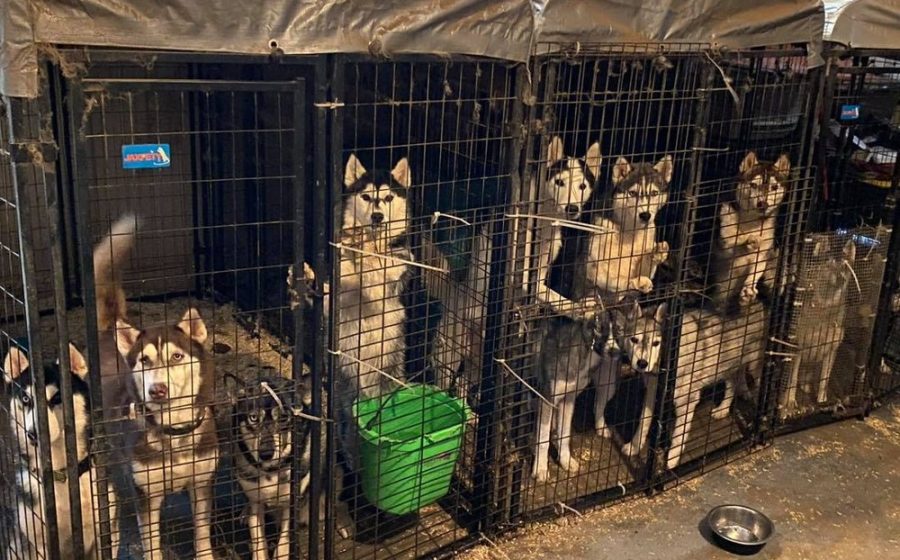Animal rights activists look to shut down “puppy mills”
Animals sold through outlets known as “puppy mills” are often kept in dirty, cramped conditions until they can be sold.
For those looking to acquire a new puppy, commercial breeding operations, commonly known as “puppy mills,” have come under some harsh criticisms. Opponents of the puppy mills point to evidence that the animals are housed in terrible conditions, often being kept in small, dirty, and cramped living spaces.
This lack of care shown is generally attributed to the animals being seen as products or an end-game product, resulting in the animals developing diseases and other health issues. The critics of puppy mills say adoption route is the better option and the best way to fight puppy mills.
Adoption is more affordable for most individuals with the average cost being around $100 to adopt a dog or cat, whereas buying a responsibly bred dog can cost thousands of dollars and come with a years long wait lists. However, the adoption centers often lack an extensive background of the dogs’ history, and many of the animals come from bad situations
“Adopt don’t shop” is a common phrase thrown around in the animal world, and people tend to debate the extent to which this phrase is accurate. After all, dog breeds were created to serve different purposes due to their particular talents and genetics. Many animal lovers actually frown upon the “adopt don’t shop” mentality. For most people, how to get their choice of pet depends on their financial situation, patience, and what they are looking for in a pet.
However, in an attempt to curb the negative impact of the less responsible breeders, New York recently passed a law that places a ban on pet stores from selling cats, dogs, and other animals,.
According to the new law, as of 2024, pet shops must work with shelters to offer rescued or abandoned animals up for adoption. The goal of this new ban is to combat the linkage between puppy mills and bet stores that are selling poorly bred or badly treated animals. This law was signed into place by Governor Kathy Hochul in 2022, making it the sixth state to create such a law.
In 2017, a similar law was signed into law in California, and became active on January 1, 2019. This law only allows pet stores to sell rescue dogs and cats that come from animal shelters or other non-profit organizations. California was the first state to create a law that actively fought against puppy mills.
As expected, there has been some pushback from New York breeders and pet stores whose businesses will be affected by this ban. However, many animal lovers and advocates openly state good riddance.
Matt Bershadker, American Society for the Prevention of Cruelty to Animals (ASPCA) president and CEO states, “As a result [of the law being put into place], New York will go from having one of the country’s highest concentrations of pet stores that sell puppy mill puppies to a place that refuses to be an accomplice in this cruel process.”
Many residents of Florida are taking notice of these laws being passed as close to 80 Florida municipal governments have enacted some sort of legislation that prohibits the selling of animals for profit in pet stores.
According to the ASPCA, “While most stores in Florida no longer sell dogs or cats, the state continues to have one of the country’s highest number of puppy-selling stores – stores that source puppies from out-of-state, cruel, commercial breeding operations known as ‘puppy mills.’”
Opponents of puppy mills argue that the most efficient solution is enacting laws similar to California’s and New York’s on a national level. The activation of such legislation would permanently affect the puppy mill pipeline across the country.
Ultimately, the Humane Society of the United States estimates that there are around 10,000 puppy mills in the U.S. Opponents of these breeding operations say that shutting down individual puppy mills and rescuing the animals is not a long term or national solution. They argue that the only way to permanently shut down these operations is to make them illegal nationwide.















